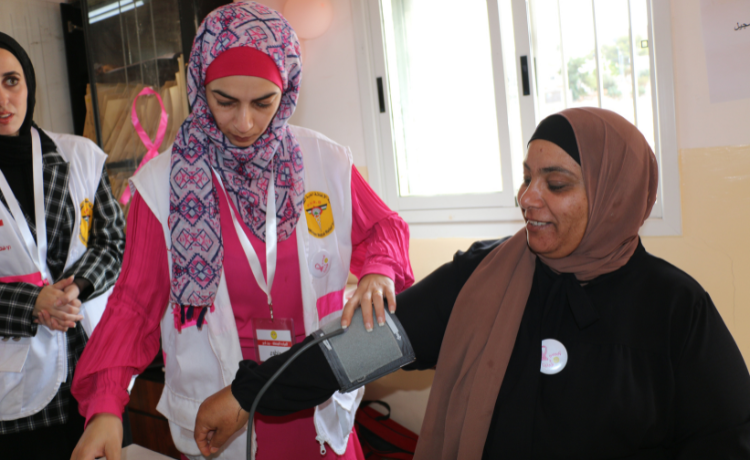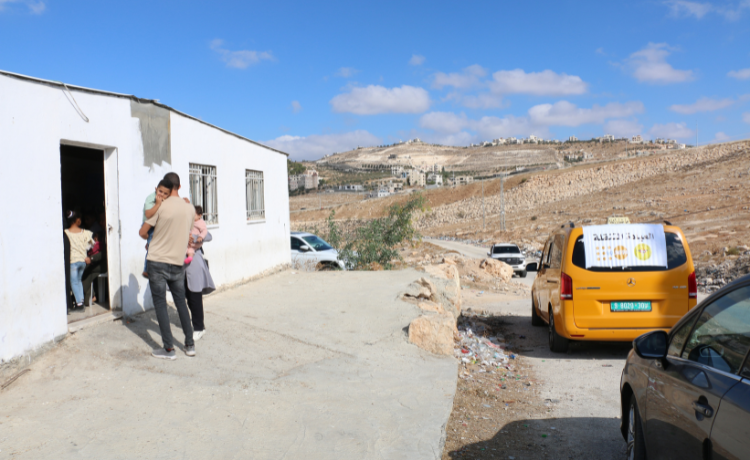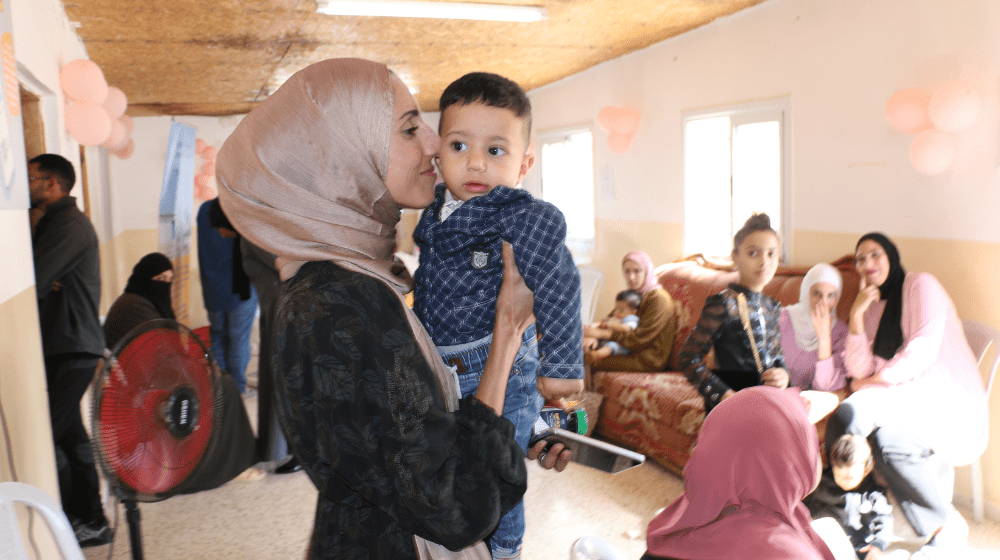WEST BANK, State of Palestine – In the small village of Bethlehem’s Al Uqban, 55-year-old Mariam Al Zeer waited in line while a mobile healthcare team arrived at the clinic. The existing clinic is rundown and does not have its own staff or supplies, and the Israeli authorities prohibit the establishment of more permanent health facilities.
The mobile healthcare teams are plugging gaps where they can, but there are serious shortages in both staff and supplies.
“It is great they are here, but once a week is not enough,” Ms. Al Zeer said. “Some days there are 50 women here – maybe 30 get medicine and 20 don’t because they run out.”
The teams visit villages of 2,000 to 3,000 residents roughly once per week, typically covering three to four villages per day. They spend about two hours in each location.
When they run out of time or supplies, the next closest clinic is an hour-and-a-half to two-hour walk away – if one can get there. Since the conflict in Gaza erupted, the gate to the village has been closed.
“Twice I brought my son who had a fever here to the mobile clinic but they didn't have any fever medication left to give him,” Duaa Adwa, 31, told UNFPA, the UN sexual and reproductive health agency.
Now, to reach the other health facility, “we need to take two taxis and then walk the rest of the way, or walk all the way,” she said. “Before, it took ten minutes by car.”
Health in crisis

The mobile healthcare teams, operated by the Palestinian Medical Relief Society with support from UNFPA, deliver services to vulnerable and isolated communities throughout Area C of the West Bank. Both Israeli military controls and violence by settlers create significant barriers to basic healthcare for villages in the area.
Despite the challenges, the mobile teams are able to deliver a wide range of primary health care and sexual and reproductive health services – from antenatal and postnatal care to family planning, including counselling on contraceptive options, and psychosocial support.
The teams also play a critical role in detecting and responding to gender-based violence, while fostering community resilience through health awareness sessions and first-aid training.
Still, they cannot reach everyone. Out of some 189 communities in need in Area C, six are unable to receive visits from mobile clinic healthcare teams due to funding challenges – an estimated $18,000 to $24,000 per month would be needed to reach the six that remain unserved.
But even the communities that do receive regular visits have major unmet needs because the capacity of the teams and clinics is simply insufficient.
Many fear the worst when the mobile teams are not around.
Duaa Al Shweiki, a young volunteer, spoke of the harsh realities: “The sad truth is, if anyone needs any help urgently, they will probably die before they are able to get to a hospital.”
A call for change

As the mobile clinic prepared to leave Al Uqban, Dalal Farhan, 38, who once volunteered with the team, described how she is now on the receiving end of their services.
“After my son was born, I had to stop volunteering in order to care for him. My son was born with diabetes,” she explained. “Here, I get medicine for him for free. Without this help, we couldn't do it. There is nowhere else for us to go.”
UNFPA and its implementing partners support four mobile clinics deployed in Area C across the Hebron, Bethlehem, Qalqilya and Tulkarem governorates, reaching over 30,000 residents.
But the future is uncertain. The current funding level has been able to cover the mobile teams’ services for about one year, but there are major challenges to securing further funds. If the current situation persists, the number of communities without mobile clinic services could rise to 96 by 2025.
“The clinic is a comfort,” Naheel Zeer, 56, said. “But we need more. We are so far from any doctors or hospitals.”


